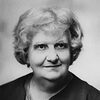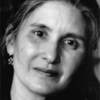
William R. Newman
Author of Promethean Ambitions: Alchemy and the Quest to Perfect Nature
About the Author
William R. Newman is professor of history of science at Indiana University
Works by William R. Newman
Secrets of Nature: Astrology and Alchemy in Early Modern Europe (Transformations: Studies in the History of Science and… (2001) 59 copies
Atoms and Alchemy: Chymistry and the Experimental Origins of the Scientific Revolution (2006) 53 copies, 1 review
Alchemy Tried in the Fire: Starkey, Boyle, and the Fate of Helmontian Chymistry (2005) 42 copies, 1 review
Gehennical Fire: The Lives of George Starkey, an American Alchemist in the Scientific Revolution (1994) 36 copies
Newton the Alchemist: Science, Enigma, and the Quest for Nature's "Secret Fire" (2018) — Author — 35 copies
The Artificial and the Natural: An Evolving Polarity (Dibner Institute Studies in the History of Science and… (2007) — Editor — 8 copies, 1 review
Tagged
Common Knowledge
- Gender
- male
- Nationality
- USA
- Occupations
- historian of science
Members
Reviews
Lists
Awards
You May Also Like
Associated Authors
Statistics
- Works
- 8
- Members
- 295
- Popularity
- #79,435
- Rating
- 3.8
- Reviews
- 4
- ISBNs
- 23













